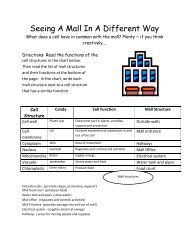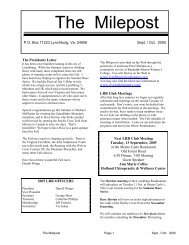Destinos: 27-52 The Main Grammar Points, and Exercises with ...
Destinos: 27-52 The Main Grammar Points, and Exercises with ...
Destinos: 27-52 The Main Grammar Points, and Exercises with ...
Create successful ePaper yourself
Turn your PDF publications into a flip-book with our unique Google optimized e-Paper software.
23<br />
Regular formation for -ER <strong>and</strong> -IR verbs: take off the infinitive ending, then add -ido:<br />
COMER-comido; VIVIR-vivido; BEBER-bebido; SALIR-salido<br />
<strong>The</strong>re are a number of verbs that have irregular past participles, <strong>and</strong> these must be memorized.<br />
abrir-abierto<br />
morir-muerto<br />
decir-dicho<br />
poner-puesto<br />
descubrir-descubierto resolver-resuelto<br />
escribir-escrito<br />
ver-visto<br />
hacer-hecho<br />
volver-vuelto<br />
Forms of the present perfect tense of the indicative mood.<br />
HABER + PAST PARTICIPLE<br />
he<br />
hablado<br />
has<br />
hecho<br />
ha<br />
comido<br />
hemos<br />
hablado<br />
habéis<br />
escrito<br />
han<br />
salido<br />
Examples. Hemos visto París. We have seen Paris.<br />
Ellas han escrito la carta. <strong>The</strong>y have written the letter.<br />
Te has levantado temprano hoy. You’ve gotten up early today.<br />
Note that the past participle form is invariable when it is part of a perfect tense: it does not<br />
“agree” <strong>with</strong> the subject in gender or number. (We do not say “Hemos vistos” or “Las muchachas<br />
han salidas;” these are incorrect. We say “Hemos visto,” <strong>and</strong> “Las muchachas han salido.”)<br />
Note also that object pronouns always precede forms of perfect tenses in Spanish. <strong>The</strong>y are never<br />
attached to the end of the past participle, nor can they be placed in between the past participle <strong>and</strong><br />
the form of haber.<br />
B. Subjunctive Mood of the Present Perfect Tense.<br />
Suppose we had a sentence like “I hope they have arrived.” <strong>The</strong> dependent noun clause “that<br />
they have arrived” contains a verb in the present perfect tense, “they have arrived.” <strong>The</strong>re is also<br />
a subjunctive trigger, “I hope,” along <strong>with</strong> a change of subject (I am doing the hoping, they are<br />
doing the arriving), so we have a classic situation where the subjunctive mood is called for in the<br />
dependent noun clause. We cannot use the indicative “ellas han llegado” in this situation, but<br />
rather must use the subjunctive form of the present perfect tense, hayan llegado.




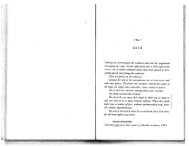
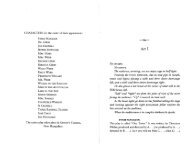

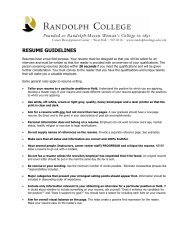

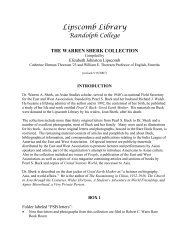
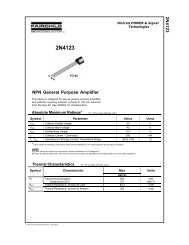

![Cast & Crew List [Program Copy pdf] - Randolph College](https://img.yumpu.com/38268916/1/190x123/cast-crew-list-program-copy-pdf-randolph-college.jpg?quality=85)
